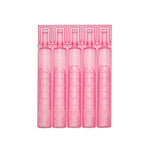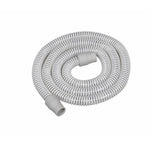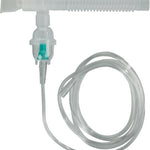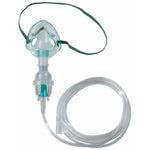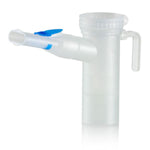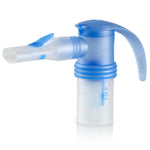You have no items in your shopping cart.
Springtime and Summer Tips for Controlling Asthma
The spring and summer months may mean warmer temps, summer fun and more time spent outdoors. Although the sunshine may be welcome, spring and summer may also mean an increase in wheezing, chest tightness and shortness of breath for people who have asthma.
Why Do Asthma Symptoms Increase in Warmer Months?
It’s important to keep in mind, everyone with asthma is different. Some people have an increase in symptoms in the winter months when the air is cold. But for others, spring and summer can cause an exacerbation of asthma symptoms for several reasons. For example, spring allergies may also cause an increase in asthma symptoms. During the spring, pollen counts are often high. Although pollen may decrease in the early summer, by late summer pollen may be on the rise again.
It’s also common for people to spend more time outdoors around lung irritants, such as swimming pool chemicals, campfires and cookouts, which can lead to a bout of wheezing for asthmatics.
The warm, humid weather that occurs during summer may also be a cause of an asthma exacerbation. Some studies indicate that hot air may irritate the airways, which can trigger inflammation in people who have asthma.
Keeping Asthma Symptoms Under Control During Spring and Summer
You don’t have to dread spring and summer due to an increase in asthma. Fortunately, there are several things you can do to keep your asthma symptoms under control.
- Stay cool: Avoid exercising outdoors when temperatures or humidity levels are high, especially if you have exercise-induced asthma.
- Identify your allergens: See an allergist if you think you have allergies. Allergies and asthma symptoms often go hand in hand. The same substances that cause your allergy symptoms may also cause a flare-up of asthma. Once your allergens have been identified, you can develop a plan to limit exposure.
- Check air quality: Summer wildfires, pollen counts and high humidity can all make breathing difficult, especially for people with asthma. If your plans involve spending time outdoors, check air quality first.
- Take your prescribed asthma medications: Some people back off their asthma medication during the warmer months because they think they are less likely to have a flare-up of symptoms. Before you stop any asthma medication, talk to your doctor.
- Be prepared when you travel: If you are hitting the road for a summer vacation, make sure you take your fast-acting inhaler and any other asthma medication prescribed. Also, pack your prescription in case you need a refill while away.
Springtime and Summer Tips for Controlling Asthma
The spring and summer months may mean warmer temps, summer fun and more time spent outdoors. Although the sunshine may be welcome, spring and summer may also mean an increase in wheezing, chest tightness and shortness of breath for people who have asthma.
Why Do Asthma Symptoms Increase in Warmer Months?
It’s important to keep in mind, everyone with asthma is different. Some people have an increase in symptoms in the winter months when the air is cold. But for others, spring and summer can cause an exacerbation of asthma symptoms for several reasons. For example, spring allergies may also cause an increase in asthma symptoms. During the spring, pollen counts are often high. Although pollen may decrease in the early summer, by late summer pollen may be on the rise again.
It’s also common for people to spend more time outdoors around lung irritants, such as swimming pool chemicals, campfires and cookouts, which can lead to a bout of wheezing for asthmatics.
The warm, humid weather that occurs during summer may also be a cause of an asthma exacerbation. Some studies indicate that hot air may irritate the airways, which can trigger inflammation in people who have asthma.
Keeping Asthma Symptoms Under Control During Spring and Summer
You don’t have to dread spring and summer due to an increase in asthma. Fortunately, there are several things you can do to keep your asthma symptoms under control.
- Stay cool: Avoid exercising outdoors when temperatures or humidity levels are high, especially if you have exercise-induced asthma.
- Identify your allergens: See an allergist if you think you have allergies. Allergies and asthma symptoms often go hand in hand. The same substances that cause your allergy symptoms may also cause a flare-up of asthma. Once your allergens have been identified, you can develop a plan to limit exposure.
- Check air quality: Summer wildfires, pollen counts and high humidity can all make breathing difficult, especially for people with asthma. If your plans involve spending time outdoors, check air quality first.
- Take your prescribed asthma medications: Some people back off their asthma medication during the warmer months because they think they are less likely to have a flare-up of symptoms. Before you stop any asthma medication, talk to your doctor.
- Be prepared when you travel: If you are hitting the road for a summer vacation, make sure you take your fast-acting inhaler and any other asthma medication prescribed. Also, pack your prescription in case you need a refill while away.


